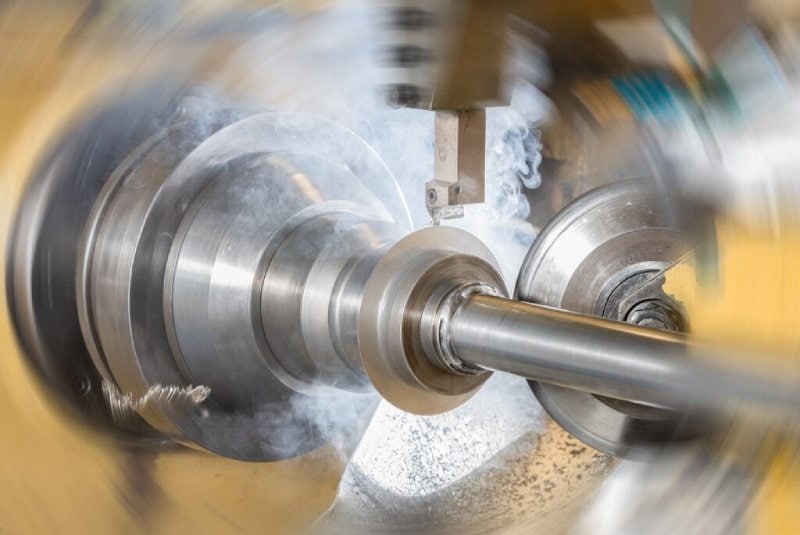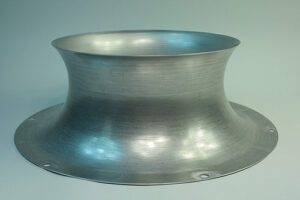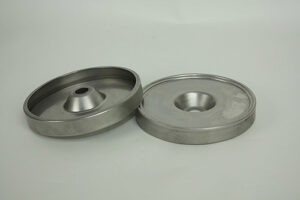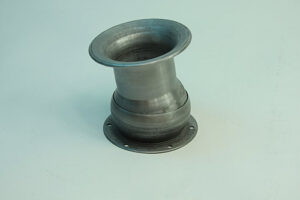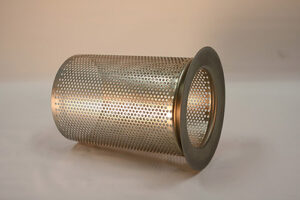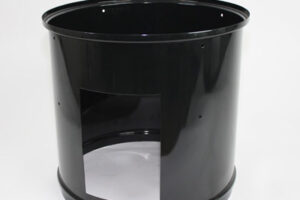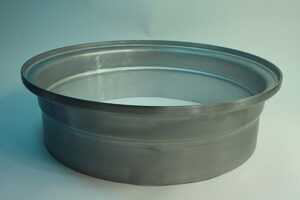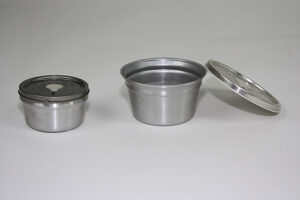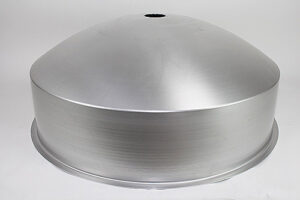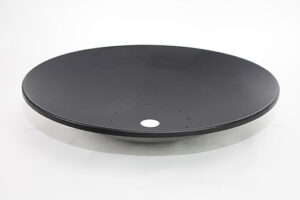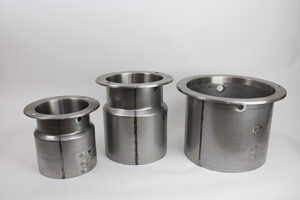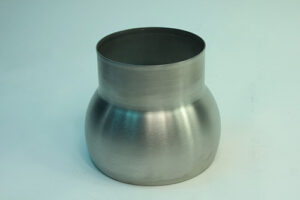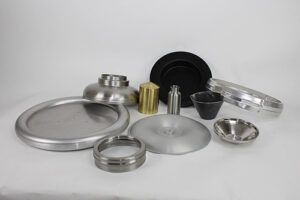Metal spinning – also called spin forming– is a metalworking process by which high-performance, axially symmetric parts are created. Unlike other metal forming processes that cut and remove material to produce a desired shape, metal spinning transforms a metal disc or tube by rotating the disc or tube and forming it to a mandrel, clamping it on a horizontal or vertical lathe, and producing a conical, toroidal, or other round shape. The process can be performed either hot or cold, depending on the particular material to be spun.
The metal spinning process is achieved through either automatic CNC spinning or manual hand spinning. The most suitable metal spinning type is chosen with consideration to the production volume and the required intricacy of resulting parts.
Advantages of Metal Spinning
Metal spinning offers a range of advantages to those looking for a very versatile, streamlined process, including:
- Lower Costs – Compared to the tools employed in alternative forming methods, metal spinning tools are typically 10% of the cost.
- Shorter Lead Times – The metal spinning process amounts to significantly shorter turnaround times – tools and spun components can be available within weeks rather than months.
- Maximum Design Flexibility – Metal spinning tools can be quickly and easily changed to accommodate evolving product designs, enabling flexibility when it’s needed most.
- Seamless, High-Quality Construction – Metal spinning produces smooth, durable objects without seams or welds, for parts require feature superior strength and great aesthetics.
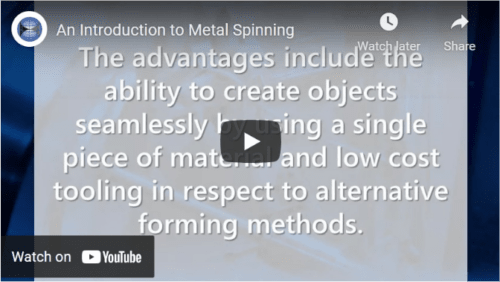
Compatible Metals
Metal spinning is compatible with a wide range of metals that each yield a unique set of advantages. The intended application and project requirements influence material selection. Several common metal spinning materials include:
Other metals that can be used in metal spinning:
Metal Spinning Applications
Metal spinning presents a cost-effective, versatile opportunity for a wide range of commercial and industrial applications, including:
- Aircraft components
- Food service equipment
- Architectural and Lighting
- Cookware
- Gas cylinders and pressure vessels
- Heavy industrial components for oil, con ag, and land vehicles
- Musical instruments
Metal Spinning Services & Tooling atChina Exotic Alloy Screws
China Exotic Alloy Screws creates metal spun components tailored to the specifications provided by our clients. We spin parts as large as 60” inches between centers, and our machinery handle parts up to 100” inches in diameter. We can also accommodate a variety of material thicknesses, including:
- Stainless Steel .018” to .375”
- Carbon Steel .018” to .375”
- Aluminum .018″ to 2.00”
In addition to metal spinning, China Exotic Alloy Screws also offers in-house tooling, welding, abrasive polishing and hydroforming, helping to drive down your costs and streamline production. Quicker turnaround times and lower costs are two of the most attractive advantages of metal spinning. The ability to form very thick components and large diameters with uniformity and high quality at low and high quantities, are more appealing reasons to consider metal spinning.
To find out if metal spinning would be beneficial for your application or end product, contact us today.
Capacities
| Metal Thickness | Up to 0.250" Stainless Steel Up to 0.375" Carbon Steel Up to 0.750" Aluminum |
| Typical Tolerance | +/- 0.030" |
| Max Height | 48" |
| Part Diameter | Max 100" |
| In-House Capabilities | Manual (Hand Spinning) CNC Spinning Double Roller Shear forming Tube End Closing (Hot Spinning) |
| Common Metal Types | Stainless steel (300 & 400 series) Carbon Steels Aluminum (1100,3003,5052,6061,2024,7075) Inconel Hastelloy Titanium Copper Bronze Brass Other alloys |
| Typical Volume | 1 to 50,000 |
| Typical Delivery Time | 4-12 weeks |
| Delivery Location | International |

